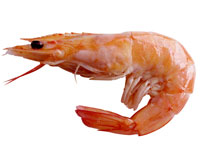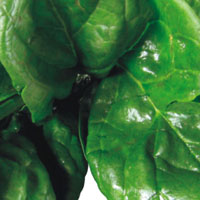17 Sep 2010
Welcome to the September Newsletter of the SCI Food Commodities and Ingredients Group. In this issue, you will find out everything about the Young Scientists' Competition 2010, which has now taken place, and who the winners were. The winning three new young ambassadors have now joined the group, and more details about them and their research projects is given below. Also, last month Lisa Methven was appointed as the new secretary of the group - find more about Lisa and the exciting research she is currently involved in with Heston Blumenthal. We have also reviewed Group activity over the last six months, which included another success 'Ask a Food Scientist' forum and look towards our autumn programme, including a Hot Topic event on GM.
We hope you find the content of interest and invite suggestions for future issues. Similarly, we would welcome feedback on the new online format of our group newsletter.
New committee members
Lisa Methven, the new secretary of the group
Dr Lisa Methven is a lecturer in Food and Sensory Science the University of Reading. Her current research interests include improving the palatability of foods for older people and understanding the effects of food processing and human genotype on the sensory perception of vegetables. Within the area of palatability, she and her research group utilise natural sources of umami taste compounds to enhance the savoury taste of food products. Lisa obtained a PhD from the University of Reading in 1996 where she studied the Maillard reaction, leading to colour and flavour formation in extruded snacks. She proceeded to work in the Food Industry in areas of ingredient functionality. In 2003, Lisa returned to Reading as a research fellow, carrying out flavour chemistry within meat products. She was appointed her lectureship in 2008.
Prof Clive Thompson
Prof Clive Thompson joined the committee in June. Clive is an active member of the Environment and Health and Safety groups and is currently working in food analysis as Chief Scientist with Alcontrol Laboratories, leading him to join the Group committee, onto which he was warmly welcomed.
Clive is Chief Scientist at Alcontrol Laboratories, which is one of the largest food and environmental contract laboratory organisations in Europe with over 2,000 staff. The company operates in 11 European countries and is currently expanding to take its services into new markets.
Clive is a Fellow of the Royal Society of Chemistry; Chartered Chemist; Chartered Scientist; Fellow of the Chartered Institute of Water and Environmental Management; Fellow of the Royal Institute of Public Health; Member of the Water Management Society (MWMSoc); Visiting Professor at Brunel University of London; Member of the American Chemical Society and Member of the Society of Environmental Toxicology and Chemistry.
He has received a Distinguished Service Certificate from British Standards and is the holder of the 2003 Society of Chemical Industry (SCI) Environmental Medal. Over the last 40 years, he has gained very broad experience in the management of environmental laboratories and also in the handling of a wide variety of associated technical issues having managed laboratories at both Severn Trent and Yorkshire Water. He has produced a significant number of peer-reviewed papers and books and also serves on over 20 national and international committees including a number of BSi, ISO and CEN water, soil, sludge, soil improver and growing media committees.
As well as the SCI Food Commodities and Ingredients group, he also serves on the Environment; Health and Safety; Yorkshire and Humberside and Science and Enterprise groups. He has carried out consultancy work for a number of organisations including the European Commission, BSi and UKWIR. He also ran the LEAP Proficiency Scheme for over 10 years, until it was sold to CSL (now Fera) in 2000. This scheme covered a wide variety of chemical and microbiological parameters in waters, effluents and soil. He has a large number of UK and worldwide professional contacts and has helped to organise over twenty international conferences on food, water and soil issues.
Past Events
Hot topic: Acrylamide

Around two dozen attendees from the potato industry, food processors, retailers, and academia listened as Prof Don Mottram of the University of Reading presented the evolution of thinking on the mechanisms for acrylamide formation, and the linkages with development of flavour and colour. He built on this to show how this understanding led to several potential avenues to reduce the levels of acrylamide produced - such as potential for work on the genetics of the potato, using enzymes to disrupt the process, and changes in cooking instructions and consumer acceptance.
Don was then joined by Wendy Matthews to host a Q&A session, and questions were fielded relating to a wide range of topics such as;
- Likelihood of regulations versus guidelines, and what limits might be set.
- Would thresholds be values per product or a recommended daily amount with the specifics left to individual choice.
- How to explain this to consumers when humans have been eating baked food for thousands of years.
- Acrylamide risk versus food quality and acceptance.
- Acrylamide as a neurotoxin or a carcinogen.
The presentations were followed by a wine reception for which most attendees stayed, and the discussions continued.
SCI AGM - 7 July 2010
SCI provides opportunities for some of the brightest people in the world to exchange ideas and gain new perspectives on markets, technology, and people, SCI Honorary President Dr Stephanie Burns says in a video shown at the 7 July 2010 AGM. Noting that SCI can act as a catalyst to get a chain reaction of ideas going, Dr Burns appealed to members to take full advantage of modern communications technology. We do not ask these questions lightly because we know it's our responsibility to help find the answers to them. SCI is in a better position than most other organisations to make a difference – given our history, our networks, our knowledge base, and our passion.' More.
- Dr Stephanie Burns was appointed to President Obama's Export Council in July 2010. Andrew Liveris, former chairman of SCI's American International Group, was also appointed.
- SCI has four new trustees to welcome – Andrew Ladds, Fred Parrett, Thomas Moore and Derek Heywood.
Young Scientists Competition 2010
SCI and the Faraday Partnership together with the IFST, supported the annual North of England Young Scientists competition, which took place at the University of Leeds on 29 April 2010, and which was very well attended. Students from universities in the north were invited to submit applications on the theme of Food Science, Food Technology or Nutrition, and the entries covered a very broad range of subjects.
A shortlist of seven undergraduate and five postgraduate entries were invited to present to a panel of judges from SCI, IFST, Faraday and Leeds University, and also an audience of students and supporters.
The judges were asked to consider originality and rationale, methodology, results interpretation, presentation skills and timing and slide count. Points were deducted for exceeding the time limits.
The undergraduate winner was James Gater, of Sheffield Hallam University, with an innovative take on the influence of types of background music on the sensory perception of coffee. The postgraduate winner was Elizabeth Mahon, of Liverpool John Moores University, with a presentation on the influence of macronutrient intake on the well being and cognitive performance of mountain marathon competitors.
Both winners received a trophy, cash prize and one year's free membership of SCI and IFST. The audience played a part and were able to vote. Yadira Gonzalez, of the University of Leeds won the audience's vote and a bottle of champagne for her work on the influences of saliva on the sensory stickiness of food. She also was given one year's free membership of SCI and IFST. All three winners were also invited to be part of the Food Commodities and Ingredients Group Young Ambassadors programme.
Young Ambassadors:
-
Yadira Gonzalez Espinosa
Yadira is currently a PhD student in the School of Food Science and Nutrition at the University of Leeds, where she previously obtained her Master's degree in Food Science, and forms part of the Food Colloids group working on food texture. The main objective of her research project is to understand the role of food textural properties (particularly stickiness) in influencing eating behaviour and sensory perception. Yadira was invited as a Young Ambassador to the Food Commodities and Ingredients group after winning the audience vote at the 2010 IFST (North) Young Scientist Awards, where Andy Kerridge was a judge. During the SCI-sponsored competition, she presented her work on the influence of saliva on the sensory stickiness of foods before joining the Group in June 2010.
-
James Gator
James is a consumer and sensory researcher currently working at MMR Research Ltd. He commenced a BSC Food and Nutrition degree at Sheffield Hallam University in 2006, which I successfully completed this year. During his degree he gained a range of experiences within sensory research through employment at both Unilever Research UK and the Centre of Food Innovation (based at Sheffield Hallam University). This year he was awarded the IFST Undergraduate North of England Young Scientist award for my dissertation project, which investigated the influence of background music on the sensory perception of coffee. As a result of this he was invited to become a member of the Young Ambassadors for the Food, Commodities and Ingredients Group of SCI. Being a part of the Young Ambassadors team has proved to be a valuable and exciting experience, he says, as it has created a network of opportunity to discuss science related themes across a range of topics. More
Group AGM
The 2010 AGM of the Group took place on the 10 June 2010, which saw Prof Clive Thompson join the committee.
The AGM was followed by an evening event on Antioxidants, with a presentation from David Berry, Technical Manager of LycoRed Ltd, on 'Nutritional anti-oxidants- successful delivery on processed food'. Last year's Young Scientists, Fraser Courts and Ben Summers also presented updates on their research.
Ben gave an introduction to the natural arsenic contamination of water in Nepal and the mitigation projects of the charity Filters for Families. He then outlined his field work that revealed high levels of under-nutrition (29-40%) amongst men in the Nawalparasi district of south Nepal, despite 49% of Nepal's agricultural output being from the southern plains. In an extension of his study undernourished men were found to be more susceptible to arsenic poising, over 20% of the study group exhibited clinical signs of arsenicosis. Ben's work continues with a grant through the British Nutrition Foundation to quantify dietary exposure to arsenic, before reviewing safety thresholds for with reference to vulnerable population groups.
Ask a Food Scientist 2010

Bursaries available
PhD students and post-doctorate academics can apply for travel bursaries for conference attendance overseas. Successful applicants must become SCI members. Applications are from 1 January - 30 March each year, and from 1 August - 15 October. More
GM Foods in December
Hot Topic events include 'GM Foods: Genetic Manipulation or Global Malnutrition?', organised by the Group and held in Belgrave Square in December.
Synopsis: The global population is estimated to rise from the current 6.5 billion people to about 9.1 billion by the middle of the century. Each year 77 million people are added to the planet - 146 every minute. Can agriculture cope with this rising demand? Can/should Genetic Modification be part of the solution? Genetic Modification could offer a faster route to market for a variety of desirable traits such as drought resistance or increased yields; or it may be able to bring in disease resistance from other species, to reduce crop losses. Prof Jonathan Jones from the Sainsbury Laboratory will put the case for food from GM plants being part of the solution.
Genetic Modification has however raised significant concerns amongst consumers- 'Frankenstein Foods', loss of biodiversity, tying farmers into buying expensive seed; and a lack of consumer benefit. Colin Tudge, biologist, and writer of 'Feeding the World is Easy', will put the view that GM is not necessary. We should take a very considered look at how we produce food. Do we farm for profit, or do we farm to produce food? Colin's view is that we are too focused on the former, and he will explain this further.
What is obvious is that GM can stir strong emotions both for, and against. There are scientists who do not understand why consumers cannot see the advantages of GM; and, consumers who are suspicious of science in general. 'Trust me, I'm a scientist' is not acceptable any more. The evening will seek to present a balanced view of the arguments for and against. More
Industry News
Compulsory warnings on colours in food and drink
The Food Standard Agency (FSA) has recently urged an EU-wide health warning to be put on any food or drink that still contains the colours that are thought to cause hyperactivity in some children. This was following the Southampton Study, commissioned by the FSA, which suggested a possible link between consumption of six food colours and hyperactivity in children. The colours are Tartrazine (E102), Quinoline Yellow (E104), Sunset Yellow (E110), Carmoisine (E122), Ponceau 4R (E124) and Allura Red (E129).
Any food and drink containing any of the six colours, except drinks with more than 1.2% alcohol, will now have to provide a warning on the label that the colour 'may have effects on activity and attention in children'. This becomes mandatory across the EU from 20 July 2010. Food and drink produced before 20 July 2010 can continue to be marketed, so it may take time for newly labelled products to appear on some store shelves.
Over the past few years, the Agency has worked with the UK food industry to voluntarily remove the six colours from food and drink, and make this information available to consumers. But the new mandatory warning will make it easier for people to choose products that are free from these colours.
FSA to begin investigation into cloned meat
The FSA has reported that it will begin to investigate reports that the offspring from cloned animals may have entered the UK food chain. To date, the FSA has tracked down two UK-born bulls which have been made by the embryos from a cow cloned in the US.
There is no clear evidence to suggest that consumption of meat from cloned animals can be hazardous to human health, although as considered a 'novel food', it requires an authorisation process to be completed before it can be sold within the UK market. More
Leafy green vegetables could reduce diabetes 
Results from six separate studies suggest that only leafy green vegetables, including cabbage and spinach, could have a positive effect on health. A portion and a half of these vegetables was found to reduce the risk of type two diabetes by 14%.
Although the results obtained do suggest that these vegetables could reduce the potential risk of diabetes, it has been warned that the research conducted is of a limited nature and that it was hard to isolate leafy green vegetables as a preventative measure alone. More
